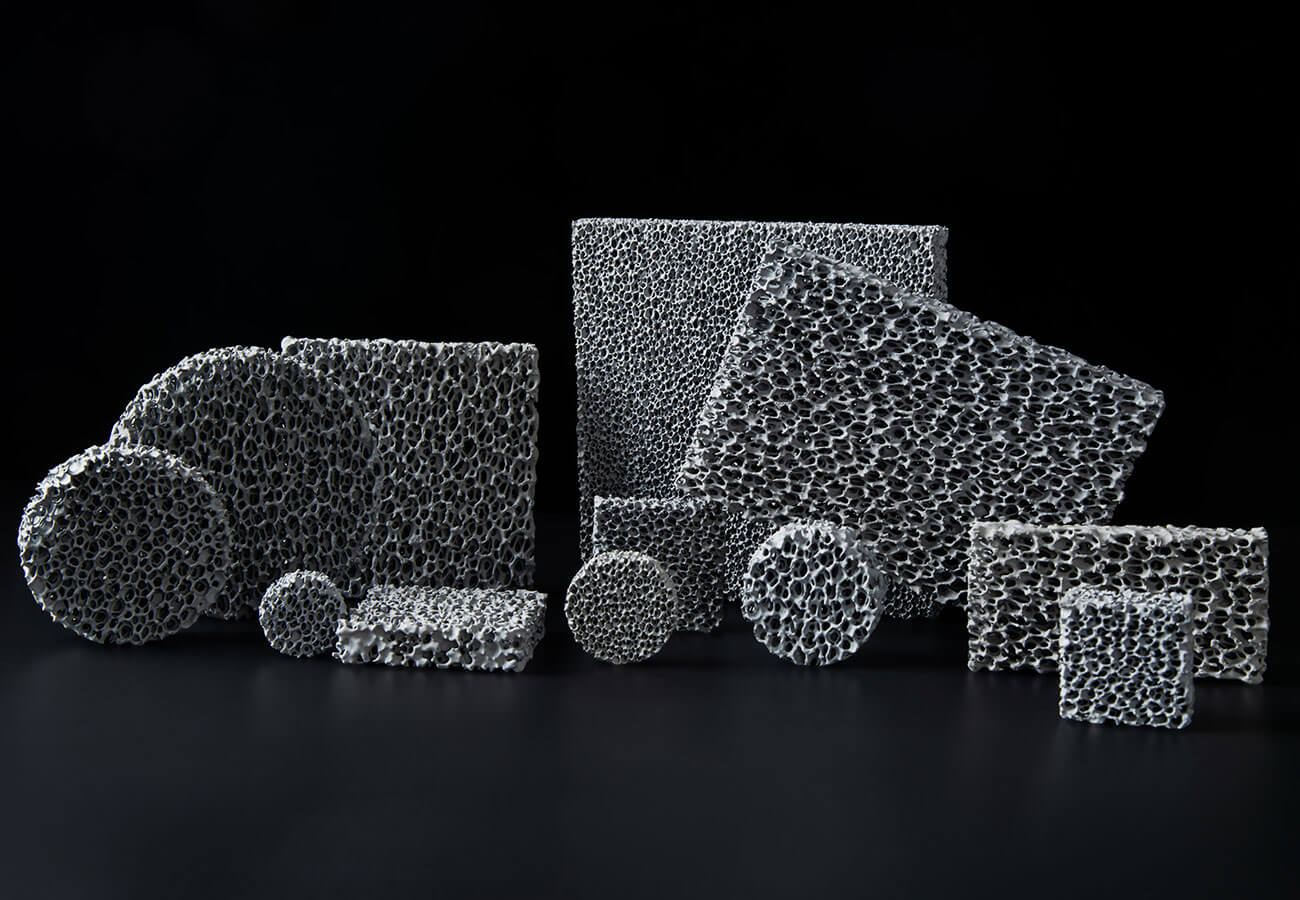Ceramic foam filter is a type of modern filtration tool utilized in various industrial applications. Their unique properties have made them indispensable in many industries. Engineers and materials scientists have designed these filters to enhance the quality of molten metal products via filtration. This article will delve into the applications of ceramic foam filters, their benefits, and why they have become common in many industrial sectors.
Let’s start by understanding the composition of ceramic foam filters. The filters consist of a porous body made up of Alumina, Silicon carbide, Zirconia, and other related ceramics to offer toughness, erosion resistance, and thermal shock resistance.
The foam filters are available in various shapes and pore sizes, and a majority are used in the molten metal casting process, including aluminum, copper, and alloys. Besides, ceramic foam filters can be employed in other industrial applications such as waste incineration, petrochemical refining, and gas purification.
Applications of Ceramic Foam Filter
-
Molten Metal Casting
Molten metal casting is a common industrial process for manufacturing products such as automobile parts, aircraft components, and more. In the casting process, alloys and metals are melted and poured in molds. However, the liquid metal may contain unwanted impurities that reduce the quality and structural strength of the final product. That’s where ceramic foam filters come in.
Ceramic foam filters can trap the impurities and particles present in the liquid metal as it is poured into the mold. This improves the quality of the final product, ensuring enhanced castings and a reduced chance of any structural faults. The filters can remove up to 99% of the impurities in the molten metal and keep the particles trapped inside the filter pores, leaving the metal free of impurities.

-
Waste Incineration
Ceramic foam filters can also be used in waste incineration. The filters are used to trap the toxic pollutants inside the flue gas, enabling purification of the waste emission. The ceramic foam filters offer an effective means of eradicating toxic contaminants present in industrial processes with extremely high temperatures, protecting nearby environments and ecosystems.
-
Gas Purification
Ceramic foam filters are also used in gas purification. When gas is cooled quickly, solid particles (particulate matter) may form, which can be difficult to remove through conventional means. As a result, ceramic foam filters are used to filter out solid particles from gases. Ceramic foam filters can remove over 99% of solid particulate matter from gases, providing a clean gas stream at an industrial scale.
Benefits of Ceramic Foam Filter
-
Improved Product Quality
Ceramic foam filters are important in improving the quality of metals and alloys produced through casting. The filters capture unwanted impurities by filtering the molten metal, yielding high-quality products that meet industry standards.
-
Reducing costs
By using ceramic foam filters, companies can reduce their overhead costs by avoiding the need for extensive metal reprocessing or complete product remanufacturing. The filters trap the impurities present in the molten metal, eliminating the need for additional metal processing and saving companies’ time and resources.
-
Enhanced Environmental Sustainability
Ceramic foam filters contribute to protecting the environment by excluding air pollutants and toxic waste gases generated from several manufacturing processes. Therefore, the filters offer an active means of reducing greenhouse gas emissions and ensuring environmental sustainability.
Overall, the use of ceramic foam filters benefits industries by ensuring improved product quality, reducing cost, and promoting environmental responsibility. The filters have become vital in many industrial processes, and their adoption towards a more sustainable and environmentally forward-facing tomorrow is necessary.
Conclusion
Ceramic foam filters have proven to be a critical aspect of several industrial sectors. The filters have provided practical solutions for filtering molten metals, waste incineration, and gas purification. They offer a vast range of benefits such as improved product quality, cost reduction, and environmental sustainability. The ability of ceramic foam filters to eliminate contaminants and improve the quality of metals and alloys while providing environmental and economic benefits makes them invaluable in improving industrial manufacturing processes.


